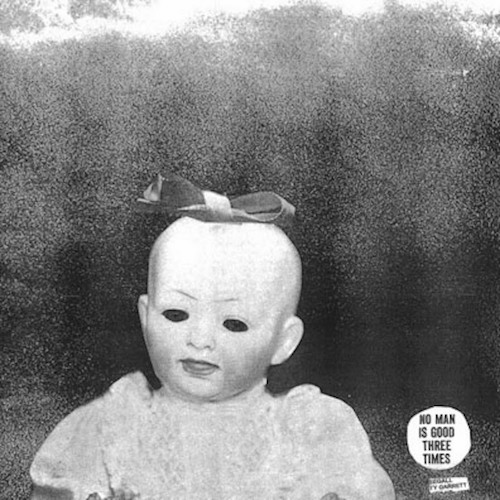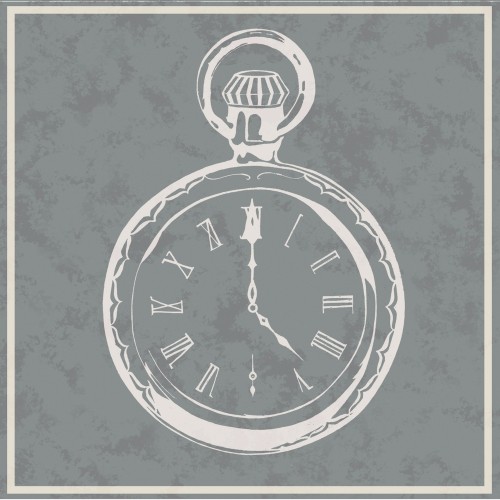 Release Date: March 27th, 2012
Release Date: March 27th, 2012





Few bands have developed a style so unique that a new term was coined to describe it. Swedish metal band Meshuggah’s pummeling, syncopated, palm-muted guitar riffs have long stood in a league of their own, but over the past few years the metal scene has been flooded by other groups trying their hand at this so-called “djent” music. While this term was originally meant to describe the sound of the guitars playing those quick, distorted riffs, the sheer number of bands that have formed their sound around the technique have made a case for it to become its own subgenre.
Most of these bands seem to be going for the “I can’t believe it’s not butter” effect, but the problem is it clearly isn’t butter and it’s also terrible. The only instances where the style really has ended up working are in oddball situations like the late Manchester alt-prog group Oceansize’s track “Sleeping Dogs and Dead Lions.”
With this wave of clones washing up on Meshuggah’s little island, it’s not hard to believe that the band has been itching to bail. So if 2008’s obZen is Meshuggah out djent-ing everyone because they can, Koloss is Meshuggah forging a new path because it has to.
On Koloss, the Swedish quintet doesn’t have anything to prove, and delivers 10 punishing tracks that will knock the listener on the floor and put their minions in their place. It’s undeniably Meshuggah, but it sees the group backing away from their signature chugs a bit in favor of simpler grooves and straight-up brutality.
In fact, it’s kind of startling how simple the tunes are here. Drummer Tomas Haake sits in the pocket for a good majority of the album. His beats were never particularly flashy, but his polyrhythmic functioning was always astonishing. On tracks like “Do Not Look Down,” the polyrhythm is still there, but much more subdued, emphasizing the groove above all.
In metal, a standout vocalist can really carry a band, and nobody sounds like Jens Kidman. His mid-range shout is instantly distinguishable and on Koloss he sounds as menacing as ever.
As The Mars Volta keeps proving, sometimes it’s better not to make huge leaps from album to album. Fortunately Meshuggah gets it. While obZen thrived on its in-your-face energy and volatility, Koloss prefers to come in and knock listeners down from behind. Haake has stated that on this album they were going for “organic brutality, viscera and groove,” and that’s exactly what we get. “The Hurt That Finds You First” and “Marrow” provide what will likely be the best 1-2 punch in metal this year.
Meshuggah are sticking up their middle finger to the other djent bands and and saying “if you want it, you can have it. You can play as fast as you want, as complex as you want, but you will never be as heavy and you sure as hell won’t be as groovy.” And they’re still the only band that has any idea what to do with an eight string guitar.
Perhaps the one thing that Meshuggah has never been particularly good at: Writing closers. obZen‘s “Dancers to a Discordant System” was actually the kind of closer they needed all along – a nine-minute, epic set of riffs that summed up the whole album, but “The Last Vigil” sees the band falling back into its old ways of ending with an atonal, ambient postlude. It’s a rather dissatisfying finish to an otherwise exhilarating album.
Where does it rank among Meshuggah’s past works? Somewhere in the middle. It’s not a total game changer like Nothing and its riffage isn’t quite as distinguished as on Catch 33, but just like its predecessor, Koloss is a consistent set of tracks that reassert one of metal’s most powerful forces.
Meshuggah – Koloss tracklist:
- “I Am Colossus”
- “The Demon’s Name Is Surveillance”
- “Do Not Look Down”
- “Behind the Sun”
- “The Hurt That Finds You First”
- “Marrow”
- “Break Those Bones Whose Sinews Gave It Motion”
- “Swarm”
- “Demiurge”
- “The Last Vigil”


